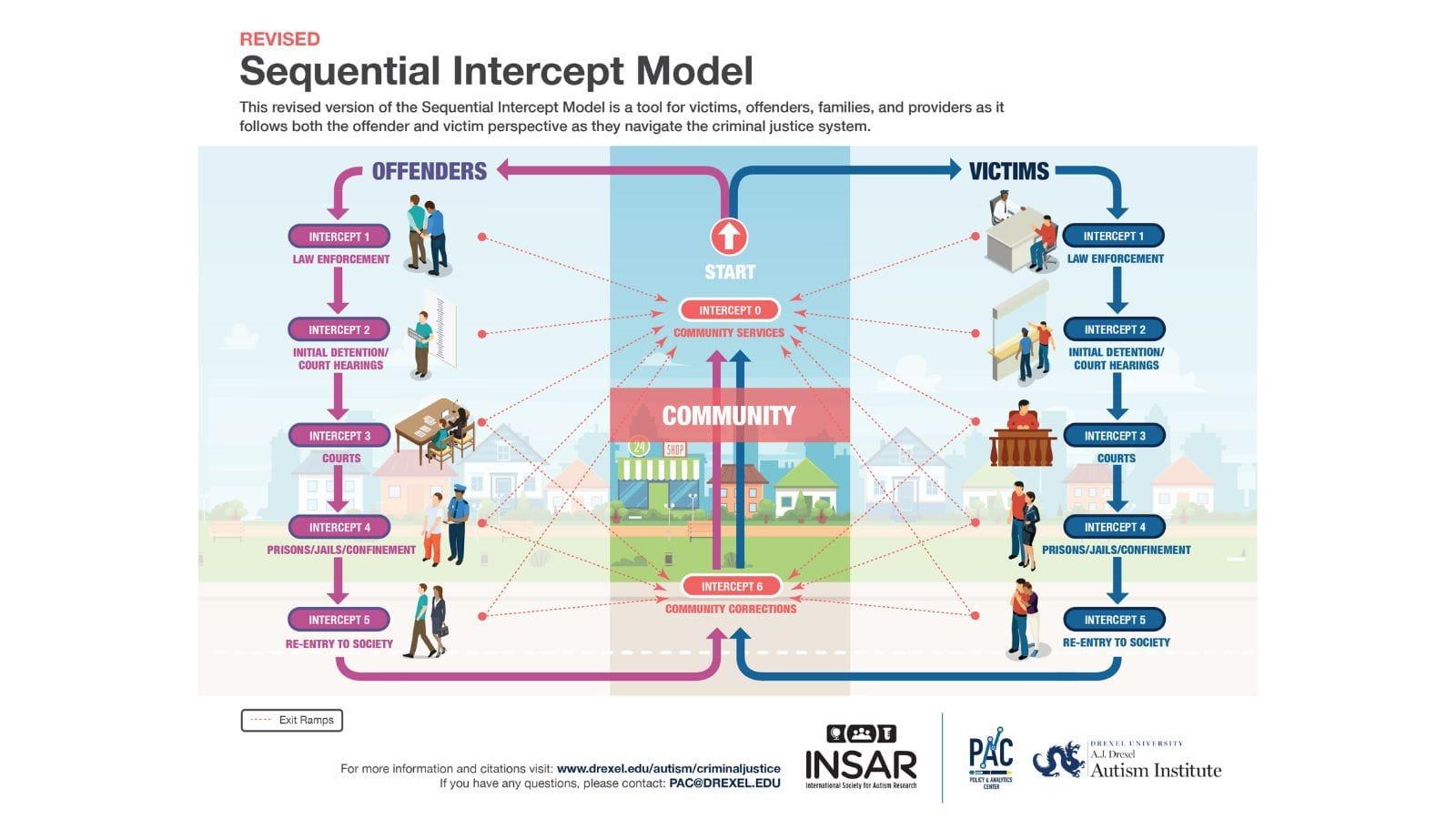A.J. Drexel Autism Institute Releases Recommendations for Autism and the Criminal Justice System

- ADHD Symptoms Predict Distinct Creative Problem-Solving Styles and Superior Solving Ability
- Lin-Manuel Miranda’s Miranda Family Fund to Support the Public Launch of Drexel University Improvisational Theater-Based Program Helping Autistic Youth
- Dragons on Fire: Kudos for Student Achievement: Fall 2025
- Philadelphia Communities Help AI Machine Learning Get Better at Spotting Gentrification
Autistic individuals interact with the justice system at high rates as both victims and offenders. With a grant from the International Society for Autism Research (INSAR) in late 2019, Drexel University’s A.J. Drexel Autism Institute explored ways to improve interactions between autistic individuals and the justice system. The funding and collaboration led to the recently published policy brief, “Autism and the Criminal Justice System: Policy Opportunities and Challenges,” with wide reaching recommendations and considerations for the broader justice system.
Recommendations from the policy brief include provisions of trauma-informed supports for autistic victims and a need for nations to sign and ratify the United Nations Convention on the Rights of Persons with Disabilities. The brief also includes recommendations that are specific to different aspects of the justice system – community services, law enforcement, confinement and re-entry – that are focused on novel programing like diversionary efforts to keep autistic people out of jail, alternatives to policing and the use of peer supports.
The policy recommendations are intended to address all individuals who are impacted by the overrepresentation of autistic individuals in the justice system. This includes autistic individuals – whether a victim or witness – and their family members and caregivers. Justice system professionals who interact with autistic individuals, community service providers and other involved professionals, also need guidance, support and new practices to effectively support autistic individuals who interact with the justice system. These recommendations offer strategies for the field and focus on generating and implementing equity-informed solutions.
“This international policy brief is an important first step to ensuring equitable access to justice for autistic individuals,” said Lindsay Shea, DrPH, leader of the Policy and Analytics Center in the Autism Institute. “Future research is needed at each stage of the criminal justice system that identifies evidence-based practices and focuses on solutions.”

Anchored by a revised version of the Sequential Intercept Model (SIM), which organizes each stage of the justice system as specific intercepts, the policy brief leverages the predictable pathways that offenders and victims follow throughout the justice system. This allows for policies that address a complex and disconnected system and guides the direction of future research.
The collaboration between the International Society for Autism Research and the Policy and Analytics Center led to an international team of stakeholders from 10 countries across multiple continents convening regularly over the course of a year to produce policy recommendations at each intercept and throughout the entire justice system. The team of stakeholders was comprised of members of the autism community, including autistic self-advocates and family members, along with researchers, policymakers and justice system professionals.
Two workgroups also focused on revising the Sequential Intercept Model and developing a global survey to measure and characterize interactions between autistic individuals and the justice system across all stages.
Autistic self-advocates and justice system professionals reviewed the text of the recommendations and policy briefs for accessibility and feedback.
“We hope this brief can help spark a discourse focusing on preventing root causes for offending and levying justice grounded in supporting and rehabilitating rather than punishing,” said Shea.
Shea added that policy changes are needed globally, as well as reimagining the role of justice.
The Policy and Analytics Center and the stakeholders of the Global Autism and Criminal Justice Consortium that helped produce this brief will continue to lead the charge on this front.
For more information, click here.
Drexel News is produced by
University Marketing and Communications.